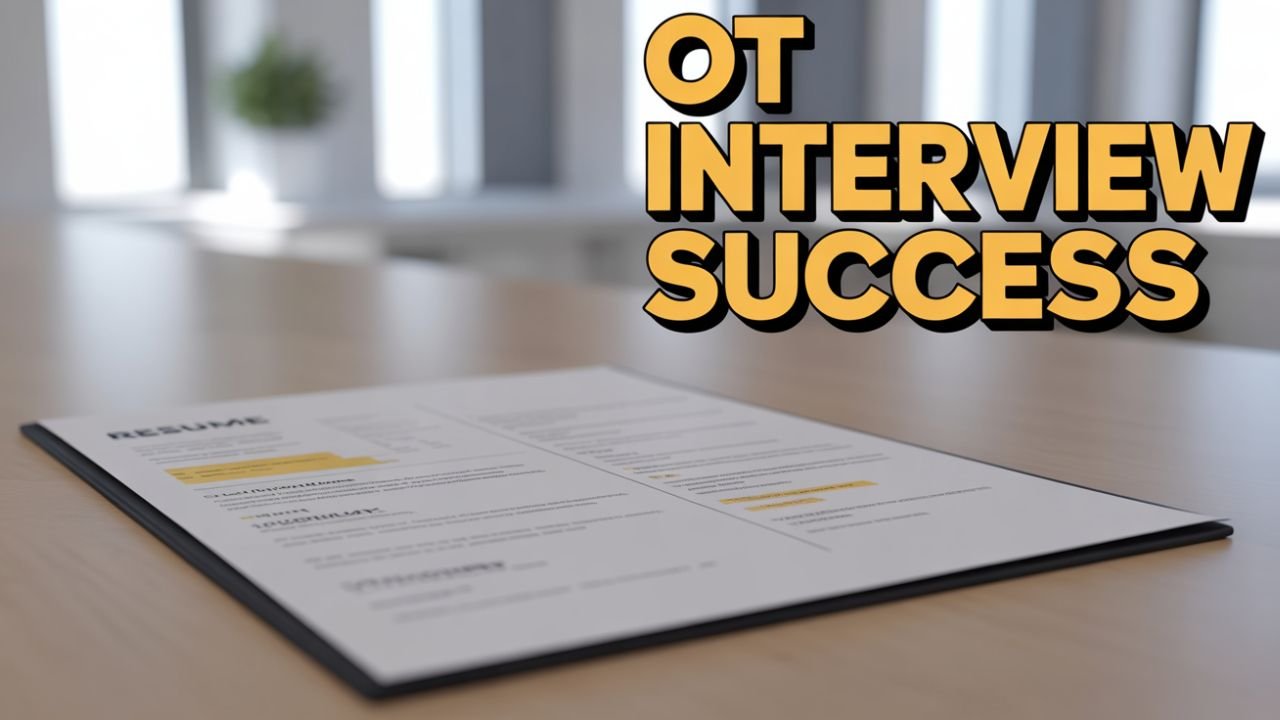Any job interview is neither easy nor smooth. Especially in the field of occupational therapy (OT), interviews can be a stressful experience. Sweaty palms, nervousness, and the fear of freezing at a crucial moment are common reactions among candidates. This fear is all the more acute because an OT interview requires demonstrating your skills, training, and passion in a limited time.
But as with everything in life, preparation is essential, so is the case with OT interviews. Without proper preparation, you could lose your chance at landing your dream OT job or COTA job. This preparation isn’t limited to external appearances, such as clothing, a resume, a cover letter, or neat nails. The most important thing is to prepare answers to questions that best highlight your unique skills.
In this article, we’ll discuss the following topics in detail:
- Problem-Solving Questions
- Questions Related to Your Personal Qualities and Experience
- Questions Related to the Employer and the Role
- Setting-Specific Questions to Ask at the End of the Interview
- Post-Interview Follow-Up and Job Offer Negotiation
Problem-Solving Questions
“How do you deal with a difficult patient or family member?”
This is one of the most common questions, not only in OT interviews but in any healthcare field. When answering it, it’s important to demonstrate that you can patiently listen to a distressed patient’s emotions and respond calmly. Sometimes, it can be challenging not to lose control of a family member. In such cases, gently asking them to calm down or leave the treatment, or engaging them in the process, demonstrates your tact.
“How did you respond when you disagreed with a management decision?”
This question lets the employer know that you can express your opinion when it’s right, but in a respectful manner. If you had objections to a decision and shared your opinion in a factual manner through a private meeting, it demonstrates your professionalism.
“Give us an example of a difficult situation and how you handled it?”
This question tests how you resolve problems and conflicts. For example, when two doctors give different orders and you have to decide whose instructions to follow. Maintaining your calm and demonstrating effective communication skills would be a good answer to this question.
“What would you do if you encountered a patient who didn’t speak English?”
Different institutions have different ways of handling language barriers. The candidate should demonstrate that they always adhere to the organization’s protocols and prioritize safety if there is any lack of understanding.
“Have you ever faced a challenging ethical situation? How did you handle it?”
This question is intended to assess the candidate’s professional ethics and ability to maintain composure under pressure. It is important to remain calm and professional when answering.
Questions Related to Your Personal Qualities and Experience
“What do you like to do in your leisure time?
This question is asked to explore the candidate’s personal interests and personality. For example, you enjoy playing golf, gardening, or engaging in some artistic activity. Answer this question honestly, but in a manner appropriate for a professional environment.
“How would your friends and enemies describe you?”
This question is intended to assess your personality and self-awareness. Presenting your weaknesses in a positive light and demonstrating a willingness to improve them is a good answer.
“Why did you choose occupational therapy?”
This question aims to gauge your passion and commitment to the profession. A truthful and inspiring answer convinces the employer that you are enthusiastic and dedicated to your work.
“What OT task did you feel most proud of?”
This question is also an opportunity to demonstrate your passion for the profession. For example, when you successfully convinced a staff member or patient about the importance of OT.
“Name the last book you read.”
Even if you are not a big reader, you should mention the name and author of the last book you read.
“Why should we hire you?”
This question gives the employer an opportunity to show how you are a good fit for the team and culture and can deliver excellent results.
Employer and Role Questions
“What interests you most about this job?”
Before answering this question, thoroughly research your chosen field and role. This demonstrates that you are passionate about the work, not just looking for a high salary or perks.
“Tell us about our hospital/institution.”
This question is meant to assess the candidate’s preparation and enthusiasm for the institution. Do your research, share the institution’s successes, or share personal experiences.
“Do you have any questions to ask us?”
The interview is not only an opportunity to test the candidate, but also an opportunity for you to learn more.This is also the time to confirm if this role and team are right for you. You can ask:
- What is a typical work day like?
- What are the qualities of an ideal candidate for this role?
- What is the documentation system like?
- What are the department’s biggest challenges and how are they being addressed?
- Why is this position open?
Setting-Specific Questions
Different occupational therapy settings, such as acute care, SNF, home health, travel OT, school-based, PRN roles, and pediatric settings, may ask different questions during interviews. Therefore, it’s essential to prepare according to the specific setting.
Follow-Up After the Interview and Job Offer
Sending a thank-you note after an interview is a professional and impressive move. It makes a positive impression on the employer and demonstrates your enthusiasm. If a job offer is received, respectfully negotiate salary and other terms.
Conclusion:
Preparation is essential for a successful occupational therapy interview. Prepare answers to problem-solving, personal qualities, employer- and setting-specific questions in advance. Additionally, clearly demonstrate your passion and professional competence. With the right preparation and confidence, you can easily land your dream OT job.
